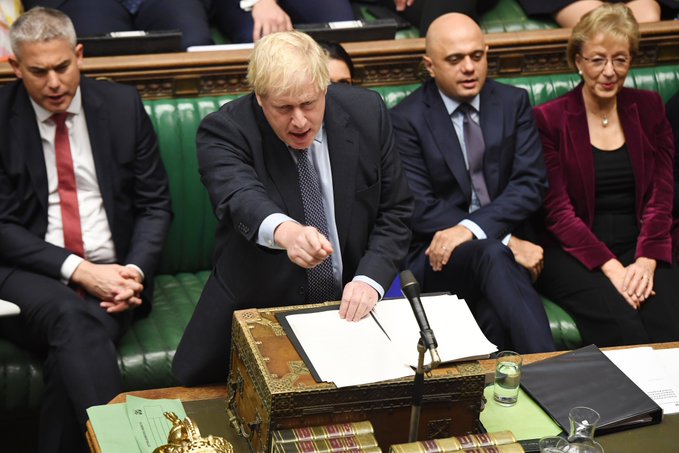January 31, 2020. That’s the date Brexiteers have been looking forward to for some time now. After four years of false-starts and stalled attempts, Britain and the European Union are finally ready to go through with their divorce. Farming, fishing, state aid, banking, trade and tariffs are just some of a myriad of issues that are set to be brought up during negotiations for a new free trade deal after Britain formally exits the EU on January 31.
A no-change transition period will run until the end of 2020, during which the two parties will seek to negotiate their future relationship.
United Kingdom Prime Minister Boris Johnson has ruled out extending the transition period and is in the process of making it illegal to do so, leaving only 11 months to seal a deal between the world’s fifth-biggest economy and its biggest trade bloc, with many sceptical of whether it is a realistic timeframe.
EU trade chief Phil Hogan warned London last week against taking talks to the wire.
“We need to wake up to this reality that gamesmanship and brinkmanship are not going to work on this occasion,” he said at a Center for Strategic and International Studies (CSIS) think-tank conference in Washington, DC.
“If you want to do a deal together I wish you well, but I’m hearing messages from the various players in this town that it won’t be as easy as the United Kingdom and the United States think, certainly it won’t be as easy as the United Kingdom thinks for the United Kingdom to strike a deal that actually meets the objectives of the administration here,” he added.
An EU-Britain deal is likely to cover security and defence cooperation, energy and transport links, fishing rights, data flows and Britain’s participation in EU programmes in science, space as well as trade.
So, what exactly is going to happen next? Here’s a timeline of what can be expected:
2020
January 29: Members in European Parliament ratify agreement
January 31: Britain leaves the EU at 11.00 pm local time
February 1: New trade deal negotiations with EU begin
February 25: European Commission presents proposals to member governments
July 1: Deadline for extending transition period past 2020
November 26: Trade deal must be presented to EU Parliament
December 31: Transition period ends and Britain exits the EU
2021
December 31: Final date for extension of transition period
The European Commission, representing the 27 remaining EU members, announced plans to prepare its recommendations and put them to the member governments on February 25 before beginning negotiations with the UK in March. The deal effectively needs to be wrapped up by October in order to present it to the European Parliament by the November 26 deadline.
In addition, for the new agreement to come into effect by January 1, 2021, it must be checked by lawyers and translated into the EU’s 22 other languages and approved before then.
Britain’s deadline for asking to extend the transition is July 1.
Obstacles
However, things are not as simple as that. There are many potential and actual obstacles to a seamless transition apart from the time crunch. The agreement between the EU and Britain on security cooperation and transportation matters is expected to be passed easily, but the EU fears London may seek to undercut the bloc in areas such as environmental and labour rules.Britain reportedly does not want to commit to keeping EU rules which make it harder to strike deals with other countries, especially the United States which is in a trade cold war with the European body.
There are also likely to be disagreements on the exact nature of access to EU markets for British services firms, notably financial services, as well as fishing rights in British waters for EU and UK fleets as well as on import limits in agriculture.
Where things stand currently
The Brexit bill is one step away from becoming law after completing its passage through Parliament.
The EU (Withdrawal Agreement) Bill, which paves the way for the UK to leave the bloc with a deal on January 31, is now awaiting royal assent after MPs in the House of Commons overwhelmingly rejected all five changes made by peers to the bill and the Lords let the Bill go forward in the second round despite allegations that their voices were ignored.
Britain has announced plans to strike deals with other countries around the world and leaked government documents revealed extensive preliminary talks with the United States last year as well as potentially ramping up trade with India, discussed in official-level and ministerial-level bilateral sessions.
It is clear that the UK is looking to a future when it is free of the EU, but there are many stumbling blocks along the way in ensuring that Brexit happens in the seamless manner they are hoping for.




